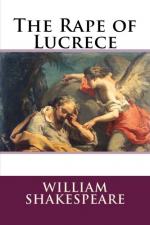|
This section contains 9,548 words (approx. 32 pages at 300 words per page) |

|
SOURCE: “‘This blemish'd fort’: The Rape of the Hearth in Shakespeare's Lucrece,” in Form and Reform in Renaissance England: Essays in Honor of Barbara Kiefer Lewalski, edited by Amy Boesky and Mary Thomas Crane, University of Delaware Press, 2000, pp. 104-26.
In the following essay, Dubrow observes that the invasion or destruction of public and private dwellings occurs repeatedly as an image in The Rape of Lucrece; she notes that this imagery is particularly poignant when it directly represents the fire of Tarquin's passion destroying the home that Lucrece has created and that her husband, Collatine, is meant to protect.
[The soul's] house is sack'd, her quite interrupted, Her mansion batter'd by the enemy, Her sacred temple spotted, spoil'd, corrupted, Grossly engirt with daring infamy: Then let it not be call'd impiety, If in this blemish'd fort I make some hole Through which I may convey this troubled soul...
|
This section contains 9,548 words (approx. 32 pages at 300 words per page) |

|


